Teaching About Indigenous Astronomy
Parallel Session
3rd Shaw-IAU Workshop on Astronomy for Education
Session timeblocks
Wednesday Oct. 13, 2021
UTC: 3:30 p.m. -
5 p.m.
America/New_York:
11:30 a.m.-
1 p.m.
Thursday Oct. 14, 2021
UTC: 6 a.m. -
7:30 a.m.
America/New_York:
2 a.m.-
3:30 a.m.
Schedule
-
Astronomies, cultures and education
Wednesday Oct. 13, 2021
UTC: 3:30 p.m. - 3:50 p.m. America/New_York: 11:30 a.m.- 11:50 a.m.Thursday Oct. 14, 2021
UTC: 6 a.m. - 6:20 a.m. America/New_York: 2 a.m.- 2:20 a.m.Some people talk about "astronomy" (the academic Western one) and "cultural astronomies" (the astronomies of "particular" cultures). This is a profound misunderstanding of the legacy of three decades of cultural astronomy studies. In this presentation we aim to discuss this confusion and to point out the contributions of cultural astronomy studies in thinking astronomical education from an intercultural perspective. The sky and their phenomena have been an area of great interest for many cultures throughout the planet over time. In "Western culture", since the Copernican revolution, astronomy has become a model for all science. Due to the colonial expansion of the Western society their academic astronomy is taught today in the most diverse places on Earth. However, cultural astronomy has shown us that every astronomy is the result of a history and a society. “Western academic astronomy” is not "the" astronomy, and it is grounded - like all the others - on a series of implicit cultural assumptions. A truly inclusive and decolonial scientific education for our present and future world, supposes the possibility for the students and teachers of a critical appropriation of "Western academic astronomy", and the chance of putting it in dialogue with the astronomical knowledge systems of their own societies.
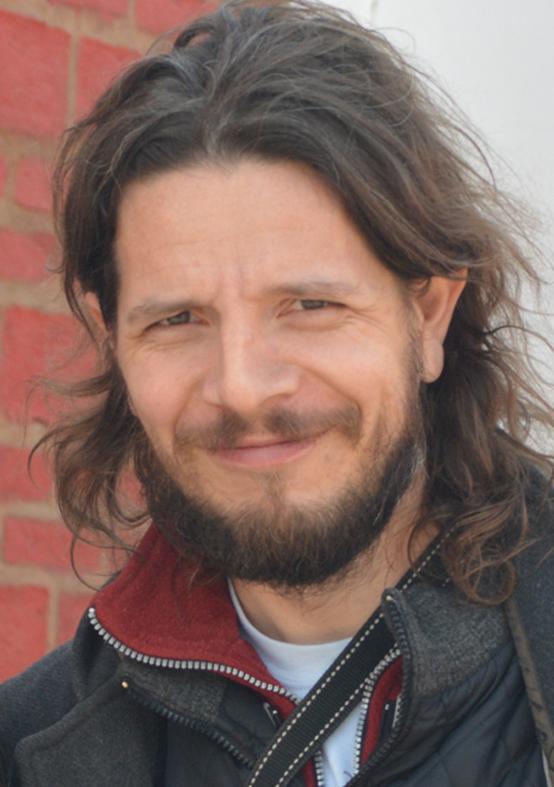
Alejandro Martin Lopez (Instituto de Ciencias Anthropologies , University de Buenos Aires)
For more information about this talk click here
-
Australia: at the crossroads of science, astronomy education and indigenous knowledge
Wednesday Oct. 13, 2021
UTC: 3:50 p.m. - 4:10 p.m. America/New_York: 11:50 a.m.- 12:10 p.m.Thursday Oct. 14, 2021
UTC: 6:20 a.m. - 6:40 a.m. America/New_York: 2:20 a.m.- 2:40 a.m.The Knowledge Systems and cultural traditions of First Peoples around the globe contain layers of complex scientific knowledge derived from detailed observation, experimentation, collected wisdom and deduction through a priori and a posteriori systems of knowledge, which is passed down to successive generations through oral tradition. By learning from the teachings of Indigenous Elders, we can understand a great deal about the development of scientific information and how that can be used for a variety of applications. As Elders teach, everything in the sky is reflected on the land, a concept promoted by Dr Annette Lee in the Lakota First Nation as Kapemni. As science educators, we also need to consider ways of assisting First Peoples who can approach scientific research and education through the lens of Etuaptmumk, 'Two Eyed Seeing" - what Mi'kmaw elder Dr Albert Marshall explains is seeing with one eye through the Indigenous world and the other through the Western academic world. This occurs at what Torres Strait Islander educationalist Professor Martin Nakata calls the Cultural Interface. These theoretical frameworks provide a foundation for teaching Indigneous astronomy and science, and support the next generation of Indigneous scientists. This talk will focus on these frameworks and show examples from around the world about how Indigenous cultures developed scientific knowledge about the machinations of the cosmos and their relationships to events on the Earth.
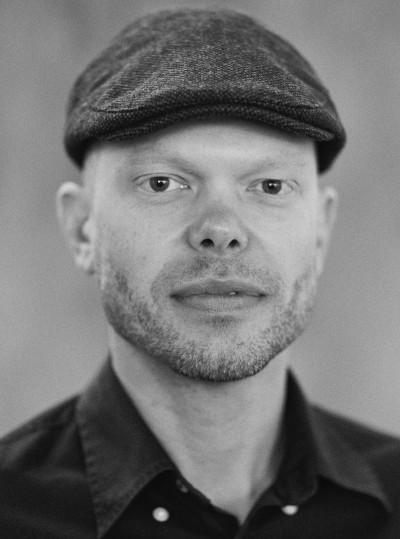
Duane Hamacher (School of Physics, University of Melbourne)
For more information about this talk click here
-
Central and Mesomerian skies: More than 4000 years of astronomy
Wednesday Oct. 13, 2021
UTC: 4:10 p.m. - 4:30 p.m. America/New_York: 12:10 p.m.- 12:30 p.m.Thursday Oct. 14, 2021
UTC: 6:40 a.m. - 7 a.m. America/New_York: 2:40 a.m.- 3 a.m.The archaeological record of the Meso and Central American peoples allows us to recognize, without a doubt, a methodical and continuous knowledge of the celestial space. Beyond this, indigenous peoples have perpetuated and are custodians of that knowledge in its most varied cultural expressions. This valuable astronomical knowledge brought to the classroom not only allows us to expand our knowledge of the universe and the human being, but also allows us to educate in a transversal way using ancestral astronomical knowledge to deconstruct ethnocentric discourses that support epistemological hegemonies, bringing the student closer to an explanation of the complex reality of our world.
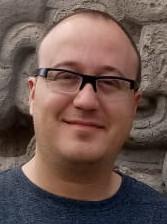
Javier Mejuto (Archaeoastronomy and Cultural astronomy Department, Space Sciences Faculty, Universidad Nacional Autónoma de Honduras.)
For more information about this talk click here
-
Teaching Material of History of Astronomy Using Digital Archives in Japan
Wednesday Oct. 13, 2021
UTC: 4:30 p.m. - 4:50 p.m. America/New_York: 12:30 p.m.- 12:50 p.m.Thursday Oct. 14, 2021
UTC: 7 a.m. - 7:20 a.m. America/New_York: 3 a.m.- 3:20 a.m.Understanding the transition of the view of the universe is important significance in learning astronomy, but there are few teaching materials or workshops prepared compared to those who learn knowledge of astronomy. It is useful to touch historical documents about astronomy. The promotion of digital archives in recent years provides this opportunity. In a class on the history of astronomy at the university, using digital archives, students searched for a diagram of the solar system drawn in historical documents about astronomy in Japan and conducted a task to consider how it differs from real solar system. Using digital archives may make students understand how the heliocentric theory has flowed into Japan and the transition of the view of the universe deeper than simple lecture.
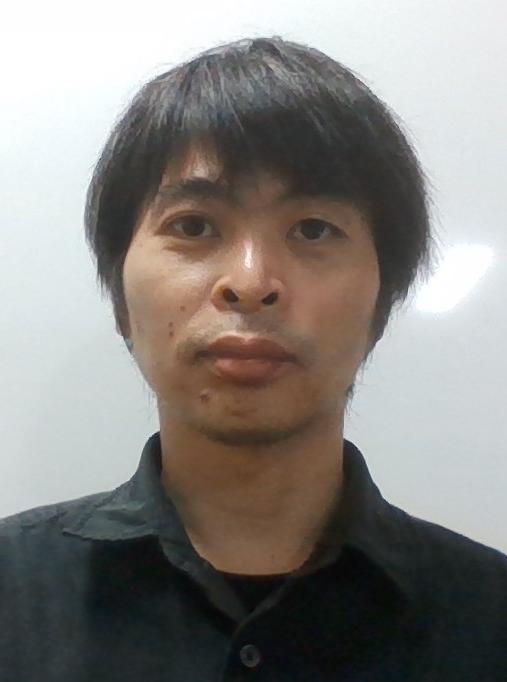
Tamazawa Harufumi (Kyoto Univercity / Kyoto CIty Univercity of Arts)
For more information about this talk click here
-
Discussion Panel: Teaching About Indigenous Astronomy
Wednesday Oct. 13, 2021UTC: 4:50 p.m. - 5 p.m. America/New_York: 12:50 p.m.- 1 p.m.
Thursday Oct. 14, 2021
UTC: 7:20 a.m. - 7:30 a.m. America/New_York: 3:20 a.m.- 3:30 a.m.Chair:
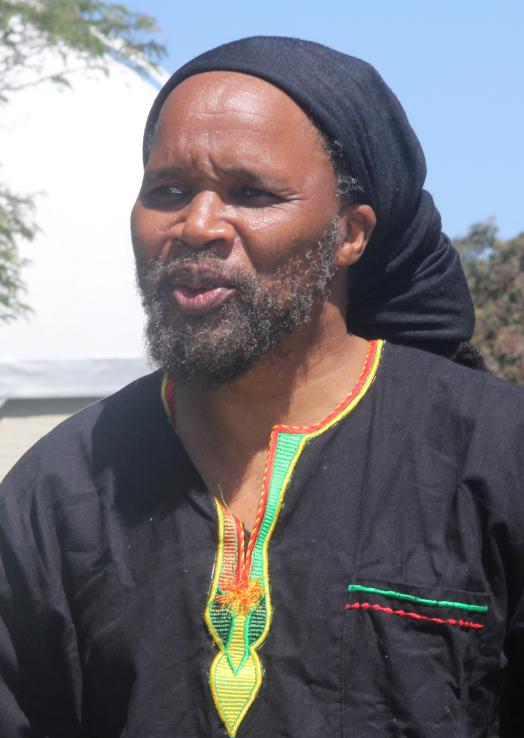
Sivuyile Manxoyi
Panel: Duane Hamacher
(School of Physics, University of Melbourne), Alejandro Martin Lopez
(Instituto de Ciencias Anthropologies , University de Buenos Aires), Javier Mejuto
(Archaeoastronomy and Cultural astronomy Department, Space Sciences Faculty, Universidad Nacional Autónoma de Honduras.), Tamazawa Harufumi
(Kyoto Univercity / Kyoto CIty Univercity of Arts)




